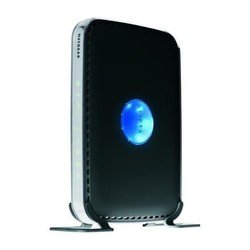The second verse of Isacc Watts’s “When I Can Read My Title Clear” says:
Should earth against my soul engage
And hellish darts be hurl’d
Then I can smile at Satan’s rage
And face a frowning world
A judicious person would automatically expect himself to be the inferior of Isaac Watts when it comes to hymn versification. Such persons, though, are not in charge of publishing hymnals. Almost universally now you will find the expression changed to “fiery darts,” as if Watts didn’t know what he was doing, or didn’t know that Eph. 6:17 of the Authorized Version of the English Bible used the wording “fiery darts.” This changed version can be found in songbooks 200 years old, so hymn improvers have a rich heritage.
Very good people desecrate hymns. They, like toddlers, think that they are helping. Often they mangle a hymn to make it, supposedly, more suitable for the current year. They are quite incapable of writing a hymn with lines like:
Great Father of glory, pure Father of light
Thine angels adore Thee, all veiling their sight
All laud we would render, Oh, help us to see
‘Tis only the splendor of light hideth Thee
Yet, like the aforementioned toddlers, they take their wax crayon and scrawl “praise” over the word “laud.” Why? They think that they’re helping.
One of my favorite lines in all of hymnody is “Heaven and earth may fade and flee, firstborn light in gloom decline, . . .” It is well-wrought poetry, as is most of the rest of “I Am His and He Is Mine.” (On the other hand, I could do without the third of four verses, which begins “Things that once were wild alarms.”) In some ill-fated hymnals, an improved version reads “Heaven and earth may pass away, sun and stars in gloom decline.” I suppose the reviser was trying to help.
“Guide Me, O Thou Great Jehovah” is among the greatest of English hymns. But like pigeons who see a statue of a great man, the desecrators cannot leave it alone. Commonly these days, the classic final verse,
When I tread the verge of Jordan
Bid my anxious fears subside
Death of death, and Hell’s destruction,
Land me safe on Canaan’s side
will be changed to say “bear me through the swelling current, land me safe on Canaan’s side.” The earlier words would teach the singers, with some instruction from their ministers, the doctrine of the Harrowing of Hell. The more recent, altered version happens to be truer to the original Welsh, but it is still a step down.
Charles Wesley knew his Bible, his Greek, and the history of theology thoroughly. Those who think that they can correct him need to realize that they are stepping into the boxing ring with a heavyweight champion. When he wrote
He left his Father’s throne above
So free, so infinite his grace
Emptied Himself of all but love
And bled for Adam’s helpless race
he captured the meaning of Philippians 2:7 accurately and beautifully. Let the correctors bring their studies of the doctrine of kenosis and lay them out for the rest of us to see. They might merit display on their mothers’ refrigerator doors for a few days — if they could be found at all.
“Come, Thou Fount of Every Blessing” has been disgraced more than most. The well-crafted line “Here I raise mine Ebenezer, hither by thy help I’m come” is easy enough to explain to someone unfamiliar with the Bible. A monument called “Ebenezer” was raised in 1 Samuel 7. The word means “stone of help” and Israel marked the occasion by saying “hitherto hath the Lord helped us.” American Christians are not stupid. They don’t need a children’s version of the hymn that takes out the hard words. The prize, however, goes to that dear saint who changed “And I hope, by thy good pleasure, safely to arrive at home” into “And I know, by thy good pleasure, safely to arrive at home.” This corrector, bless God, had a know-so salvation and had no room in his thinking for a Bible word like “hope,” even if changing it made grammatical hash out of a formerly beautiful song.
A particularly egregious instance of effrontery is the change (within the last forty years, as I recall) of Charles Wesley’s “My God is reconciled” to “I now am reconciled.” It is true that, in the New Testament, “reconciliation” is used only of the sinner being reconciled to God, and not God being reconciled to the sinner. Well and good. But does it ever occur to the corrector that Charles Wesley might actually have known that just as well, or better, than he? Apparently not. Like a halfback who has been passed the football, looks for an opening in the line of scrimmage, and “runs for daylight,” the corrector’s only goal is to employ his superiority to Wesley in God’s service.
The line in question occurs in the last stanza of “Arise, My Soul, Arise.” The five verses of the song form one coherent whole; they relate to one another. Monkeying with the fifth verse throws it out of kilter with the previous four, and it makes the fifth verse itself internally incoherent. A common worshipper will probably never see the problem with the altered line. A hymn corrector could easily see it if he weren’t a barbarian.
A cursory reading makes plain that the song is about the sinner’s fears that he might die eternally under the righteous wrath of God, but “the bleeding sacrifice” appears before the judgment bar of God. Christ, the sacrifice, prays and pleads that the ransomed sinner might be forgiven. Then, the work is done! God’s wrath is satisfied, the sinner is pardoned, and he can now draw nigh to God confidently and cry “Abba, Father.”
Is this scriptural? Certainly (unless you hold some esoteric doctrine that the elect, from birth until conversion, are never under the wrath of God). Psalm 7:11 says that God is angry with the wicked every day. If this be so, and if God stops being angry when a sinner repents and receives salvation, saying that God is reconciled is altogether correct.
In contrast, suddenly changing the subject and announcing “I now am reconciled” (I’m no longer a rebel against God) is literary barbarism. That wasn’t the topic under discussion in the first four stanzas and it doesn’t fit with the remainder of the fifth stanza (see above).
In conclusion . . .
Sometimes a hymn may legitimately need correcting. The poetry can be clumsy or the imagery may be unsuitable for the congregation’s culture. An Arminian line may be unsingable in a Calvinist church, or vice versa. Such things are matters of necessity and might be agreed upon by all people of good will. The correctors and desecrators, on the other hand, display an arrogance, a carelessness, and a level of ignorance which bodes ill for the future of Christianity since it reveals the decline of Christian culture not only on the part of the barbarians, but more alarmingly on the part of those who publish their barbarisms.


